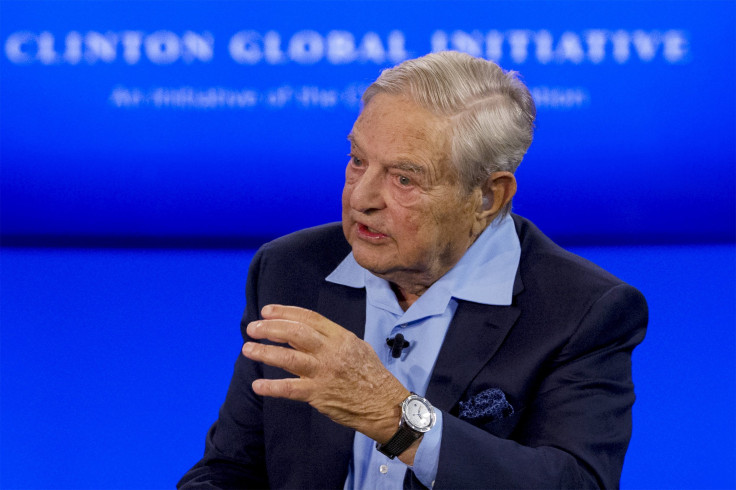China's State-Run Media To George Soros: Don't Bet On Our Currency

China’s state-run media has a message for billionaire investor George Soros: Don’t bet against our currency. On Tuesday, the People’s Daily published a front-page opinion piece in its overseas edition criticizing Soros for allegedly betting on further declines in China and Hong Kong’s currencies: “Soros’ challenge against the renminbi and Hong Kong dollar is unlikely to succeed; there is no doubt about that,” it said.
The official reproof comes days after the influential Greek-born investor gave an interview to Bloomberg TV from the World Economic Forum in Davos, Switzerland, saying China was one of the “root causes” of global market troubles. He warned the nation’s economy faced “a hard landing” as it struggles to transition away from an export-oriented model.
In the interview, Soros never specifically mentioned the yuan or the Hong Kong dollar but said he had placed bets against the S&P 500, commodity-producing countries and Asian currencies.
China’s economy grew 6.9 percent in 2015, its weakest rate in 25 years. The slowdown has prompted investors to bet on the decline of the country’s currency. As Reuters recently noted, the moves have drawn comparisons to Soros’ famed bet against the British pound in 1992 — a gamble that earned him $1 billion.
In a separate editorial published Saturday, China’s state news agency Xinhua said the country’s ongoing economic restructuring presented myriad investment opportunities and warned speculators.
“Some believe that the Chinese capital market is experiencing a major crisis, of which they try to take advantage with speculative actions and even vicious shorting activities,” the editorial said.
As the nation’s market regulators improve their oversight, it said: “Reckless speculation and vicious shorting will face higher trading costs and possibly severe legal consequences."
The renminbi has weakened 6 percent against the dollar since last summer. As the Financial Times noted, China’s central bank has spent hundreds of billions of dollars from its foreign exchange reserves to prevent further depreciation amid mounting capital outflows.
© Copyright IBTimes 2024. All rights reserved.





















